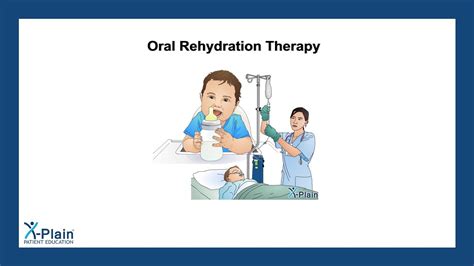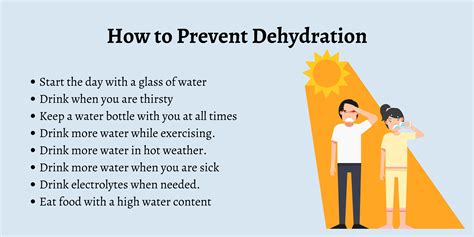Intro
Replenish your bodys vital fluids with these effective rehydration methods. Discover how to replace lost fluids, electrolytes, and water after exercise, illness, or dehydration. Learn the best ways to rehydrate, including hydration drinks, water intake, and nutrient-rich foods to restore balance and revive your bodys optimal functioning.
Staying hydrated is essential for maintaining proper bodily functions, and it's especially crucial when we lose fluids due to various reasons such as exercise, illness, or environmental factors. Dehydration can lead to serious health issues if not addressed promptly. Fortunately, there are several effective ways to rehydrate your body and replace lost fluids. In this article, we'll explore the importance of hydration, signs of dehydration, and provide practical tips on how to rehydrate your body.

When we lose fluids, our body's water balance is disrupted, leading to dehydration. Dehydration can cause a range of symptoms, from mild to severe, including headaches, fatigue, dry mouth, and dark-colored urine. In severe cases, dehydration can lead to heat stroke, seizures, and even death. It's essential to recognize the signs of dehydration and take prompt action to rehydrate your body.
Understanding Dehydration
Dehydration occurs when our body loses more fluids than it takes in, causing an imbalance in our body's water and electrolyte levels. There are several reasons why dehydration occurs, including:
- Physical activity: Engaging in strenuous physical activity can cause excessive sweating, leading to dehydration.
- Illness: Vomiting, diarrhea, and fever can cause dehydration due to excessive fluid loss.
- Environmental factors: Hot and humid weather, high altitudes, and exposure to extreme temperatures can cause dehydration.
- Medications: Certain medications, such as diuretics, can cause dehydration as a side effect.
Signs of Dehydration
Recognizing the signs of dehydration is crucial to taking prompt action. Here are some common signs of dehydration:
- Headaches: Dehydration can cause headaches due to a lack of fluids and electrolytes.
- Fatigue: Feeling tired, weak, and lethargic are common symptoms of dehydration.
- Dry mouth: A dry mouth and throat can indicate dehydration.
- Dark-colored urine: If your urine is dark yellow or amber-colored, it may be a sign of dehydration.
- Dizziness and lightheadedness: Dehydration can cause dizziness and lightheadedness due to a lack of fluids and electrolytes.
Rehydrating Your Body
Rehydrating your body involves replacing lost fluids and electrolytes. Here are some effective ways to rehydrate your body:

- Drink water: Drinking water is the most effective way to rehydrate your body. Aim to drink at least 8-10 glasses of water per day.
- Electrolyte-rich drinks: Drinks that are rich in electrolytes, such as coconut water, sports drinks, and fruit juices, can help replace lost electrolytes.
- Eat hydrating foods: Foods that are high in water content, such as watermelon, cucumbers, and celery, can help rehydrate your body.
- Avoid caffeinated drinks: Caffeinated drinks, such as coffee and soda, can exacerbate dehydration due to their diuretic effects.
- Take electrolyte supplements: If you're experiencing severe dehydration, taking electrolyte supplements can help replace lost electrolytes.
Rehydration Techniques
In addition to drinking water and electrolyte-rich drinks, there are several rehydration techniques that can help replace lost fluids and electrolytes. Here are some effective rehydration techniques:
- IV rehydration: Intravenous (IV) rehydration involves administering fluids and electrolytes directly into the bloodstream through a vein.
- Oral rehydration therapy: Oral rehydration therapy involves drinking fluids that are rich in electrolytes, such as sports drinks and fruit juices.
- Hydration packs: Hydration packs, such as CamelBak, can help you stay hydrated during physical activity.
Preventing Dehydration
Preventing dehydration is easier than treating it. Here are some tips to help you stay hydrated:

- Drink water regularly: Drink water regularly throughout the day, even if you don't feel thirsty.
- Monitor your urine output: If your urine is dark yellow or amber-colored, it may be a sign of dehydration.
- Avoid excessive physical activity: Avoid engaging in strenuous physical activity, especially in hot and humid weather.
- Wear loose clothing: Wearing loose clothing can help keep you cool and prevent dehydration.
Dehydration in Specific Populations
Dehydration can affect anyone, but certain populations are more susceptible to dehydration due to various factors. Here are some specific populations that are at risk of dehydration:
- Athletes: Athletes are at risk of dehydration due to excessive physical activity and sweating.
- Older adults: Older adults are at risk of dehydration due to age-related decline in thirst sensation and changes in body composition.
- Pregnant women: Pregnant women are at risk of dehydration due to increased fluid needs and hormonal changes.
- People with chronic illnesses: People with chronic illnesses, such as diabetes and kidney disease, are at risk of dehydration due to medication side effects and underlying health conditions.
Conclusion
Rehydrating your body is essential for maintaining proper bodily functions and preventing dehydration. By recognizing the signs of dehydration and taking prompt action, you can help replace lost fluids and electrolytes. Remember to drink water regularly, eat hydrating foods, and avoid caffeinated drinks to stay hydrated. If you're experiencing severe dehydration, seek medical attention immediately.
What are the signs of dehydration?
+The signs of dehydration include headaches, fatigue, dry mouth, dark-colored urine, and dizziness and lightheadedness.
How can I rehydrate my body?
+You can rehydrate your body by drinking water, eating hydrating foods, and taking electrolyte supplements. You can also try rehydration techniques, such as IV rehydration and oral rehydration therapy.
Who is at risk of dehydration?
+Athletes, older adults, pregnant women, and people with chronic illnesses are at risk of dehydration due to various factors, such as excessive physical activity, age-related decline in thirst sensation, and underlying health conditions.
We hope you found this article informative and helpful. Remember to stay hydrated and take care of your body. If you have any questions or comments, please feel free to share them below.

